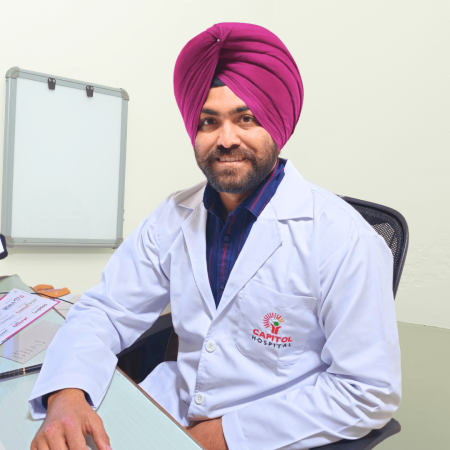Department of Urology
The Department provides paramount medical and surgical care in all aspects of Endourology, Andrology, Female Urology, Paediatric Urology, Genito-Urinary reconstructions and Uro-oncology. It has provision for screening, staging and up-to-date treatment of uro-genital tumors including those of kidney, ureter, bladder and prostate. It also deals with benign conditions like Benign Prostatic Hyperplasia (BPH), stone formation, etc. The department has State of art HOLMIUM LASER, which is used for minimal invasive operative procedures of enlarged prostate with cardiac safety. Besides, it is also used for the stitch-less treatment of renal stones with flexible scoops, strictures, and management of urinary bladder tumors.

Available Services
Uroendoscopy and Ureterorenoscopy (URS)
PCNL-Percutaneous Nephrolithotomy
Optical Internal Urethrotomy ( OIU) and Urethroplasty
Laparoscopic Nephrectomy
Laparoscopic Pyeloplasty
Histopathology
Laparoscopic Ureterolithotomy
Laparoscopic Diverticulectomy
Transrectal ultrasound guided (TRUS) Guided Biopsy of Prostate
Transurethral Resection of the Prostate (TURP)
Radical Cystoprostatectomy with Neobladder/Conduit
Radical Prostatectomy for prostate cancer
Transurethral resection of bladder tumor (TURBT)
Uroflowmetry, Incontinence & Haematuria
Varicocele
Andrology services like infertility, impotence and sexual dysfunction
Pediatric Urology

